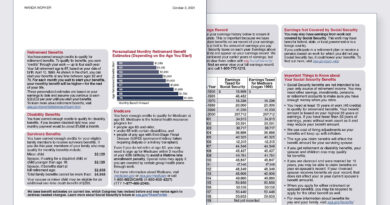Saving Social Security — Should We Restrict Who Can be a Recipient?

It’s no secret that Social Security is facing a financial hardship. If nothing changes to shore up its shrinking trust fund, the agency may be forced to reduce benefits. Nobody wants to see that happen, especially when so many older Americans rely on these monthly checks to support them during retirement. This has many people wondering why millionaires — and even billionaires — collect Social Security.
As Yahoo! Finance explains, Social Security is not a welfare program. It’s funded by payroll taxes on workers, so if you worked and paid into the system then you can receive benefits during your retirement — regardless of how much money you earned.
Payroll to Payout
All workers are supposed to pay 6.2 percent of their earnings as payroll tax to fund Social Security, which their employer matches. However, there is a cap on earnings. That’s the point where the worker no longer needs to pay payroll taxes. This year it is set at $147,000. That means that high wage earners are only taxed on a small portion of their income, while the average American worker pays taxes on their full salary. This has critics crying foul!
Scrap the Cap
Many people think the Social Security payroll tax is unfair and want to see high income earners pay a bigger chunk of their earnings in taxes.
Some lawmakers have proposed reapplying the Social Security payroll tax starting at $400,000 in wages. Earnings up to $147,000 would still be taxed. Then there would be a gap where the taxes are no longer applied until wages reached $400,000 and then the tax would be assessed again.
Our Solution
The Seniors Trust believes the best bet to shore up Social Security is for lawmakers to enact the Social Security Expansion Act. It calls for lifting the cap on Social Security taxes to ensure that the wealthiest Americans pay a fairer amount in relation to their income. The bill’s sponsors say doing so would “extend the solvency of Social Security for about 52 years to the year 2071.”
Additionally, the Social Security Expansion Act would provide bigger monthly benefits — about $200 on average. It will also establish a fairer cost-of-living adjustment (COLA) by using the Consumer Price Index for the Elderly (CPI-E) instead of the Consumer Price Index for Urban Wage Earners (CPI-W) used currently because the CPI-E takes into account the unique spending habits of seniors.



